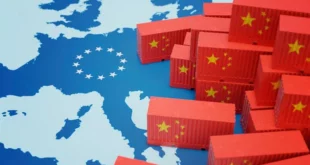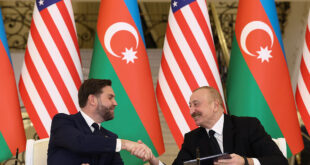MOSCOW (Reuters) – Russia will not start a new arms race when it freezes compliance with a Cold War arms treaty on Wednesday but it does want to send a clear message it is not happy about NATO’s eastward expansion.
Russia will suspend its participation in the Conventional Forces in Europe (CFE) treaty, a pact that limits weapons levels on either side of the old Iron Curtain and, according to Moscow, now gives NATO free rein to beef up its forces.
“There is no threat from Moscow. No one in Berlin would think that Russian tanks could move on Germany,” said Anatoly Antonov, head of the foreign ministry’s security and disarmament department.
But Russia’s concerns about the CFE treaty “were not listened to and we are forced to take such a serious decision”, he told reporters last week.
Western capitals regard Russia’s move as another sign of the assertive approach to foreign policy under President Vladimir Putin. Moscow has also taken a tough stance against Washington’s plans for a missile shield in Europe.
Russia’s military says the only practical implication from the suspension, which comes into force at 0001 Moscow time on Wednesday, will be that it will stop exchanging data on troops levels and halt inspections.
But a senior lawmaker with Kremlin ties said last week Moscow would not rule out increasing its troops levels later if NATO ramps up its forces in eastern Europe.
RUSSIAN UNEASE
Russia’s biggest grievance with the CFE treaty is that it restricts Moscow’s freedom to deploy troops and weapons west of the Ural mountains, but it does not cap armaments in new NATO members in eastern Europe.
Russia has watched NATO’s eastward expansion with unease and its concern has heightened as Washington prepares to open bases in new alliance members Bulgaria and Romania.
Policymakers in Moscow also fear NATO forces could be deployed in one of the ex-Soviet Baltic states, within striking distance of Russia’s second city, St Petersburg.
“The hypothetical transfer of NATO forces into the Baltics is a real military threat,” said Alexei Arbatov, an arms control expert at the Carnegie Moscow Center, an independent think-tank.
“This (freezing CFE compliance) is a signal that this does not suit us.”
Western governments say they regret Russia’s move on the treaty although they are not sounding the alarm.
“It’s not a new Cold War or a new arms race — there will be no material impact on security,” said one Western diplomat. “But there will be a lack of transparency because the verification regime won’t operate.”
The CFE treaty has a long and tangled history. Signed in 1990 at the end of the Cold War, it secured the reduction or destruction of about 60,000 pieces of equipment and set limits on the conventional forces that remained.
New NATO members in the Baltics are not covered by the treaty. Others that are took with them into NATO their old Warsaw Pact weapons quotas, Russian officials say.
The treaty was revised in 1999 to take account of the changes but Western states have refused to ratify it, arguing that Moscow had not fulfilled a commitment to withdraw its forces from ex-Soviet Moldova and Georgia.
Russia disputes this and says the only troops it has left in the two countries are peacekeepers.
Foreign ministry official Antonov said Russia was still committed to negotiating a solution on the treaty.
“The moratorium is not an aim in itself. It is a way of attracting the attention of our partners,” he said. “We are open to dialogue even after December 12.”
 Eurasia Press & News
Eurasia Press & News



